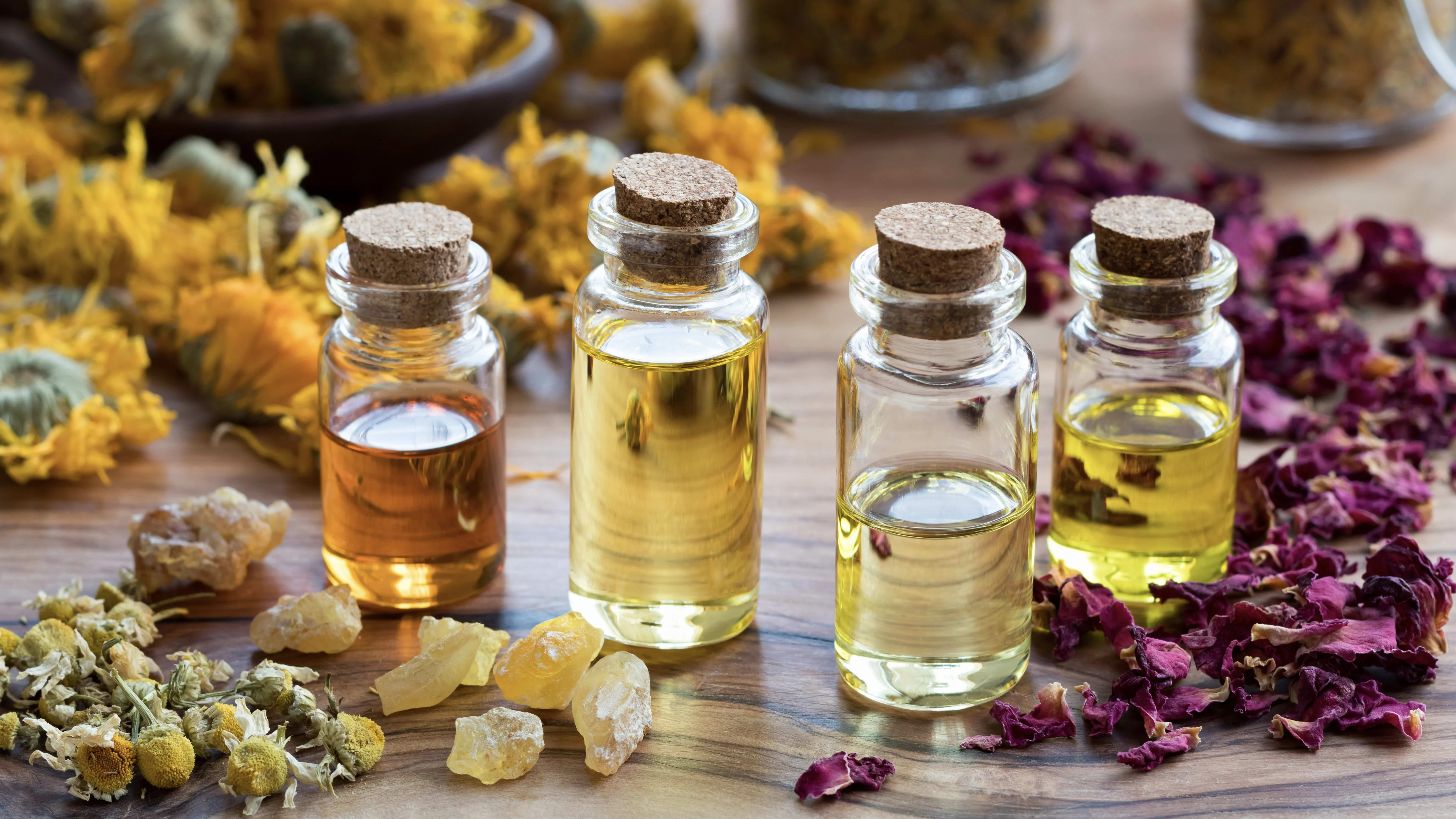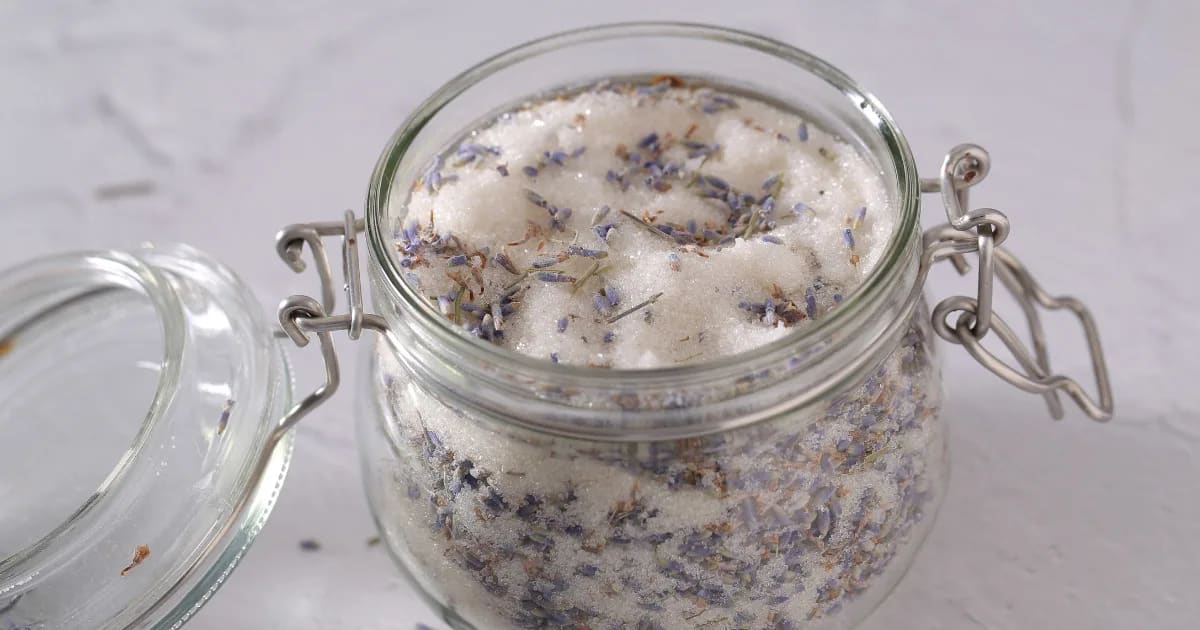Fall into Balance: Aromatherapy for Mental Health & Seasonal Shifts

Seasonal Change & Emotional Wellness
As the days grow shorter and the air takes on a crisp edge, many of us notice subtle shifts in mood and energy. Shorter daylight hours, changing routines, and new demands from school or work can stir up stress, anxiety disorder, or even feelings of depression.
Yet autumn is more than a season of transition on the way to winter. It’s a season with its own rhythms, moods, and opportunities for nourishment. The gentle pull inward, the slowing of energy, and the quiet invitation to reflect aren’t obstacles to manage. They are the essence of fall itself.
By honoring autumn as its own state, we can open space for balance and emotional wellness. We allow ourselves to fully inhabit this season, embracing both its introspection and its subtle gifts.
That’s what this aromatherapy guide is here for: to help you meet fall on its own terms. You’ll discover:
How Seasonal Changes Affect Mood: Explore how shifts in daylight, circadian rhythm, and hormone patterns can influence mental well being and emotional balance.
How Essential Oils Support Mental & Emotional Wellness: Discover which oils uplift mood, calm the nervous system, support restful sleep, and enhance focus and motivation.
The Fall Emotional Support Toolkit: A collection of DIY recipes designed for emotional balance, including:
Fatigue Fighter Roll-On
Sweet Orange Anxiety Inhaler
Sleepy Time Pillow Spray
SAD Support Bath Salts
Hemp & Roots Grounding Massage Oil
Morning Motivation Routine & Shower Gel
Autumn Grounding Diffuser Blend
Whipped Immune Support Body Butter
Journaling & Creativity Oil
How Seasonal Changes Affect Mood
As sunlight diminishes in the fall, our bodies experience natural shifts. Light plays a key role in regulating circadian rhythm, our internal biological clock that controls sleep, hormone production, and alertness.
When we get less daylight, we can experience:
Melatonin Fluctuations: Darkness triggers our body to produce melatonin (sometimes known as “the hormone of darkness”), which can make us feel sleepier earlier in the evening. This decline in energy can contribute to depression, anxiety disorder, mental fatigue or Seasonal Affective Disorder (SAD).
Sleep-Wake Cycle Adjustments: Altered light cues can affect sleep quality and timing, which in turn impacts emotional stability and focus.
Serotonin Reduction: Less sunlight may lower serotonin levels, contributing to mood dips, anxiety, or depression.
Lower Vitamin D Levels: Reduced sun exposure (and lower serotonin levels) can decrease your body’s vitamin D production, which may influence mood, immune function, and overall energy.
Stress Response: Seasonal changes in light may influence cortisol patterns, subtly affecting stress resilience and emotional balance.
These changes in light also interact with the limbic system, a part of the brain that regulates emotions, memory, and the nervous system’s response to stress. The limbic system processes sensory input, including light and scent, and translates it into emotional and physiological reactions. When daylight diminishes, signals to the limbic system shift, subtly affecting our body’s ability to manage stress and anxiety.
We can see the relationship between the mind and body here. As our bodies produce fewer “feel-good” hormones like serotonin, our minds become more susceptible to stress, anxiety, or depression. And when our minds dwell in these unwanted cycles, the body responds by producing even fewer supportive hormones, reinforcing the cycle. Over time, this back-and-forth can heighten mental fatigue, amplify anxiety and depression, and make it harder to maintain emotional balance.
Understanding this mind-body connection highlights the value of intentional sensory practices, like aromatherapy and mindful movement, interrupting the negative feedback cycle. With intention and consistency, we can support nervous system balance, emotional regulation, and overall emotional well being.
How Essential Oils Support Mental & Emotional Wellness
Aromatherapy engages the mind-body connection, supporting mental well being in a holistic way.
Scent interacts with the olfactory system (which is part of the limbic system). Certain essential oil aromas can trigger strong positive emotions and memories for us (and which aromas affect us can vary from person to person). This interrupts unwanted mental cycles, making it easier for us to find a positive thought. Once we’re “thinking happy thoughts,” the body begins producing more feel good hormones in response. This, in turn, makes it easier to feel content and at peace.
There are essential oil benefits for our physical bodies, too. Some oils contain compounds that can calm the nervous system, reduce blood pressure and cortisol levels, interact with endorphin receptors, and more. Let’s explore a few specific essential oil properties:
Uplift Mood: Citruses like lemon essential oil (Citrus limon) have been shown to reduce the doses of antidepressants that patients require. (Komori et al. 1995). Researchers noted, “The treatment with citrus fragrance normalized neuroendocrine hormone levels and immune function and was rather more effective than antidepressants [alone].”
Calm the Nervous System: Lavender (Lavandula angustifolia) preparations have been shown to reduce anxiety as well as some prescription medications (Woelk & Schläfke, 2010). We can infer that lavender’s main component, linalool, plays a role in its anxiolytic effect, and look to other oils rich in linalool for the same purpose. In addition, bergamot essential oil (Citrus bergamia) has been shown to reduce cortisol levels (Watanabe et al. 2015), supporting relaxation.
Enhance Neurotransmitter Activity: Researchers in a 2013 study (Lv et al.) noted, “inhalation of essential oils can communicate signals to the olfactory system and stimulate the brain to exert neurotransmitters (e.g. serotonin and dopamine) thereby further regulating mood.” And a component in citrus oils, d-limonene, may increase dopamine levels in the brain, and help the body make use of it more effectively. It may also help us create more GABA, a neurotransmitter that calms the nervous system and supports an anxiolytic effect (Song et al. 2021).
Support Healthy Blood Pressure: Cedrol (found in cedarwood oil, Juniperus virginiana) has been shown to lower blood pressure and heart rate, calming the fight-or-flight response and supporting rest (Dayawansa et al. 2003). Results were consistent even if people could not smell the cedrol.
Boost Motivation & Mental Clarity: Stimulating oils like peppermint essential oil (Mentha × piperita) may reduce burnout and mental fatigue (Varney & Buckle, 2013), while rosemary essential oil (Salvia rosmarinus ct camphor) can boost mood, motivation, and mental clarity (Moss et al. 2003; Diego et al. 1998).
Promote Restful Sleep: Oils that calm the nervous system (like lavender (Lavandula angustifolia), ylang ylang (Cananga odorata), and cedarwood (Juniperus virginiana) are ideal for evening rituals. They help soothe the body, while calming and focusing the mind.
Sensory Anchoring: Due to its effect on the limbic system, the familiar scent of an essential oil can become a cue for a mindful pause, a deep breath, or a self-care ritual for emotional wellbeing.
DIY Recipes: Fall Emotional Balance Toolkit
This collection of recipes can help you stay balanced through fall and into winter.
Consistency is key. Choose those recipes you feel called to, which you’ll turn to often for support. Aromatherapy is most effective if you use your essential oil blends regularly (rather than once in a while). Incorporating aromatherapy oils into your daily routines can help anchor your day when life feels hectic, and set the stage for long-term well being.
Fatigue Fighter Roll-On
Some days feel heavier than others, don’t they? This little roll-on is a portable boost for both body and mind. Topical application allows your body to absorb the essential oil components through the skin. Just a few swipes can help lift your mood, refresh your senses, and give your energy the gentle nudge it needs. Perfect for busy mornings, long workdays, or afternoons when you need a reset.
Ingredients
10 ml Jojoba Oil (Simmondsia chinensis)
4 drops Sweet Orange Oil (Citrus sinensis)
2 drops Peppermint Oil (Mentha × piperita)
1 drop Frankincense Oil (Boswellia sacra)
Directions
Combine the ingredients in a 10 ml roll-on bottle.
Cap tightly and roll between your palms to blend.
Why It Works
Sweet Orange Oil: Bright, citrusy, and full of mood-lifting d-limonene, it helps reduce feelings of mental fatigue and promotes a positive outlook (Song et al. 2021).
Peppermint Oil: Peppermint stimulates alertness, increases focus, and refreshes the senses (Varney & Buckle, 2013).
Frankincense Oil: Grounding and centering, frankincense helps balance emotions and supports calm, focused energy (Awadh et al. 2009).
You can find another of our popular recipes for fatigue here. This one includes black spruce and lemon!
Sweet Orange Soothing Inhaler for Anxiety
Stress and anxiety can creep up at any moment. Taking deep, supportive breaths with essential oil can make a big difference.
This Sweet Orange Soothing Inhaler comes straight from our Ultimate Guide to Using Essential Oils for Anxiety. I won't claim that essential oils offer a cure to anxiety disorder. But this guide helps you understand the best essential oils for anxiety, learn how to blend with them safely and effectively, and create aromatherapy tools that help.
The inhaler is a compact, portable way to access calming, mood-lifting aromas anytime you need support. A few slow, deep inhales can help ease anxiety and depression, restore focus, and encourage emotional balance.
Ingredients
5 drops Bergamot Oil (Citrus bergamia)
5 drops Lemon Oil (Citrus limon)
5 drops Sweet Orange Oil (Citrus sinensis)
Directions
Add the essential oil drops to a blank inhaler. Keep it with you and use as needed any time you need the calming effect of sweet orange!
Why It Works
Bergamot: Known for its anxiolytic effects, bergamot helps reduce stress, elevate mood, and support mental well being (Watanabe et al. 2015).
Lemon: Bright and refreshing, lemon can enhance alertness while gently calming the nervous system (Song et al. 2021; Komori et al. 1995).
Sweet Orange: Uplifting and mood-boosting, sweet orange encourages positivity and emotional resilience (Song et al. 2021; Komori et al. 1995).
Sleepy Time Pillow Spray
This Sleepy Time Pillow Spray is a little nightly ritual! The essential oil blend includes classics for relaxation, such as lavender oil and frankincense essential oil. A gentle mist over your pillow creates a familiar, calming scent that signals to your body it’s time to let go of the day and rest.
Ingredients
About 2 fl oz (60 ml) Lemon Balm Hydrosol (Melissa officinalis)
4 ml Solubol dispersant
8 drops Lavender Oil (Lavandula angustifolia)
6 drops Bergamot Oil (Citrus bergamia)
6 drops Frankincense Oil (Boswellia sacra)
3 drops Ylang Ylang Oil (Cananga odorata)
Directions
Combine the essential oils and Solubol in the bottle.
Fill it the rest of the way (to the shoulder) with lemon balm hydrosol.
Cap and shake well before misting onto your pillow.
Shake well before each use. This blend is made without preservatives. Store in a cool, dark area and make fresh every few weeks.
Why It Works
Lavender Oil: Widely known in the aromatherapy world for its calming effect, lavender helps reduce anxiety and depression, lower stress, and promote mental relaxation (Woelk & Schläfke, 2010).
Bergamot Oil: Uplifting yet soothing, bergamot supports stress relief, and gently calms the nervous system (Watanabe et al. 2015).
Frankincense Oil: Grounding and centering, it encourages mindfulness and helps quiet the mind before sleep (Awadh et al. 2009; Yang et al. 2016).
Ylang Ylang Oil: Supports emotional balance, eases anxious feelings, and enhances a sense of calm and comfort (Hongratanaworakit & Buchbauer, 2006; Hwang, 2006).
If you love aromatherapy sprays like I do, you may also want to try this recipe with vetiver, or this one with tamala oil.
SAD Support Bath Salts
Simply taking a warm bath can soothe anxiety and depression, but adding aromatherapy turns it into a full self-care ritual.
There’s more to using essential oils in a bath than simply dropping the oils directly into the tub. Since the oils won’t dilute in the bath water, we use a skin-nourishing carrier oil. That way, when the lipid-based oils are drawn to our skin, they’re safely diluted and are less likely to cause skin irritation. (Learn more about using essential oils safely in the bath.)
Ingredients
4 oz (112 gm) Pink Himalayan Salt
1 fl oz (30 ml) Jojoba Oil (Simmondsia chinensis)
5 drops Sweet Orange Oil (Citrus sinensis)
4 drops Cedarwood Oil (Cedrus atlantica)
1 drop Rose Absolute (Rosa × damascena)
Directions
Stir all of the ingredients together in a small bowl or a container with a lid. Use half of the blend in your bath and store the rest for next time.
Why It Works
Sweet Orange Oil: Provides uplifting, mood-boosting support, helping to support stress relief and ease mild depression often associated with seasonal changes (Song et al. 2021; Komori et al. 1995).
Cedarwood Oil: Offers grounding and calming effects during anxiety, helping to ease feelings of depression (Dayawansa et al. 2003; Zhang & Yao, 2018).
Rose Absolute: Rose oil promotes emotional balance and comfort, nurturing a sense of calm and mental well being (Haze, Sakai & Gozu, 2002). (If you don’t have rose, you can substitute lavender oil (Lavandula angustifolia), neroli oil (Citrus aurantium var amara), jasmine oil (Jasminum grandiflorum), ylang ylang oil (Cananga odorata), or Roman chamomile oil (Chamaemelum nobile).
Hemp & Roots Grounding Massage Oil
This aromatherapy massage oil is designed to help you release tension, calm inflammation, and reconnect with your body. Root-based essential oils (spikenard, gandhi root, and ginger) bring earthy aromas that nurture feelings of security and balance, while hemp seed oil soothes and warms sore muscles.
Use it after a long day, post-workout, or whenever you need a moment to feel centered. For the full recipe, visit this post.
Morning Motivation
Before the world pulls you in every direction, you have a chance to set the tone for the hours ahead. A mindful morning routine isn’t about rushing or forcing yourself awake. It’s about creating intentional space to breathe, center, and energize your mind and body.
Essential oils are a powerful ally here. They can lift mood, clear mental fatigue, and gently nudge your nervous system into a state of alert, focused readiness.
Check out our post: How to Start a Calming Morning Routine with Essential Oils. You’ll discover ways to harness oils to awaken your senses and ease anxiety before the day begins.
Want an extra energizing boost? Try our DIY Morning Shower Gel with Rosemary and Aloe.
Autumn Grounding Diffuser Blend
As the seasons turn and our bodies adjust, it’s natural to crave a little extra comfort and stability. This Autumn Grounding Diffuser Blend fills your space with warm, earthy, and uplifting aromas. Run your essential oil diffuser for morning focus or winding down after a busy day. It gently grounds the mind while bringing a hint of seasonal brightness to your home.
Ingredients
5 drops Cedarwood Oil (Cedrus atlantica)
3 drops Sweet Orange Oil (Citrus sinensis)
1 drop Clove Bud Oil (Syzygium aromaticum)
1 drop Cardamom Oil (Elettaria cardamomum)
Why It Works
Cedarwood Oil: Provides a stabilizing therapeutic effect, helping to calm the nervous system (Dayawansa et al. 2003).
Sweet Orange Oil: This warm citrus oil uplifts the mood and brings a bright, energizing note to counter fatigue or low energy (Song et al. 2021).
Clove Bud Oil: Adds warmth and depth, supporting a sense of comfort and emotional security during seasonal transitions (Tisserand & Young, 2014). Clove bud is also among the popular essential oils for depression.
Cardamom Oil: Encourages mental clarity, reduces stress, and enhances focus, helping the mind feel centered and alert (Moss & Oliver, 2012).
Whipped Immune Support + Mood Boosting Body Butter
Rich, creamy, and luxuriously silky, this Whipped Immune Support Body Butter is a self-care ritual that supports your health while boosting your mood. It keeps your skin soft and hydrated. Gandhi root oil, eucalyptus oil, and sweet orange oil help you stay grounded and uplifted. You can find the full recipe and step-by-step video here on the blog.
Journaling + Creativity Oil
Journaling and other creative practices are powerful tools for emotional and mental well being. When we put pen to paper or spend time drawing, we externalize worries, clarify emotions, and gain perspective on challenges.
This blend is a gentle companion, helping you settle into a clear, focused, and inspired state. Just a few drops can invite ideas to flow more freely.
Ingredients
1 fl oz (30 ml) Sweet Almond Oil (Prunus amygdalus var dulcis)
5 drops Frankincense Oil (Boswellia sacra)
3 drops Clary Sage Oil (Salvia sclarea)
2 drops Bergamot Oil (Citrus bergamia)
2 drops Nutmeg Oil (Myristica fragrans)
Directions
Combine the ingredients in a 1 fl oz (30 ml) dropper bottle. Shake gently.
Why It Works
Frankincense Oil: It helps quiet a busy mind, enhancing focus and presence for mindful writing or creative work (Awadh et al. 2009; Moussaieff et al. 2008).
Clary Sage Oil: Promotes clarity of thought and emotional balance, reducing mental fatigue and encouraging free-flowing self-expression (Battaglia, 2018). It also contains the main component in lavender (linalool), largely responsible for its anxiolytic effect.
Bergamot Oil: It stimulates inspiration and lightens anxious or heavy feelings that can block creativity (Watanabe et al. 2015).
Nutmeg Oil: Adds a warm, spicy note that encourages mental alertness and invigorates the senses, helping ideas to flow more freely (El-Alfy et al. 2009).
My Takeaway
As we transition into fall, it’s essential to recognize the impact that seasonal changes can have on our mental and emotional well being. Aromatherapy offers a simple, effective way to stay centered, whether it’s through uplifting blends, calming rituals, or simply taking a mindful moment to breathe.
This season is a natural time to reflect on yourself. What’s shifting? What’s needed? Try different oils and approaches. Notice which scents help you feel more grounded, more present, more at ease.
Let your curiosity guide you in creating rituals that nurture and empower you. In that space of mindful care, you’ll often find exactly the inspiration you need to meet this season with clarity and steadiness as the days become shorter, or longer, depending on where you are in the world.
REFERENCES
Awadh Ali, N.A., Wurster, M., Arnold, N., Lindequist, U. and Wessjohan, L. (2009) Chemical composition and biological activities of essential oils from the oleogum resins of three endemic Soqotraen Boswellia species. Records of Natural Products 2, 1, 6-12.
Battaglia, S. (2018) The Complete Guide to Aromatherapy (Third Edition) Vol I: Foundations & Materia Medica. Zillmere, QLD, Australia. Black Pepper Creative Party, Ltd.
Dayawansa, S., Katsumi, U., Takakuro, H., Hori, E., Tabuchi, E., Nagashima, Y., Oosu, H., Yada, Y., Suzuki, T., Ono, T., Nishijo, H. (2003) Autonomic responses during inhalation of natural fragrance of Cedrol in humans. Autonomic Neuroscience: Basal & Clinical Oct 31; 108(1-2):79-86 https://pubmed.ncbi.nlm.nih.gov/14614968/
Diego, M. A., Jones, N. A., Field, T., Hernandez-Reif, M., Schanberg, S., Kuhn, C., McAdam, V., Galamaga, R., & Galamaga, M. (1998). Aromatherapy positively affects mood, EEG patterns of alertness and math computations. The International journal of neuroscience, 96(3-4), 217–224. https://doi.org/10.3109/00207459808986469
El-Alfy, A. T., Wilson, L., ElSohly, M. A., & Abourashed, E. A. (2009). Towards a better understanding of the psychopharmacology of nutmeg: Activities in the mouse tetrad assay. Journal of ethnopharmacology, 126(2), 280-286
Haze, S., Sakai, K. and Gozu, Y. (2002) Effects of fragrance inhalation on sympathetic activity in normal adults. Japanese Journal of Pharmacology 90, 247-253.
Hongratanaworakit, T. and Buchbauer, G. (2006) Relaxing effect of ylang ylang on humans after transdermal absorption. Phytotherapy Research 20, 9, 758-763.
Hwang, J.H. (2006) The effects of the inhalation method using essential oils on blood pressure and stress responses of clients with essential hypertension. Taehan Kanhoe Hakhoe Chi 36, 7, 1123-1134. Article in Korean. Available at http://www.ncbi.nlm.nih.gov/pubmed/17211115
Komori, T., Fujiwara, R., Tanida, M., Nomura, J., & Yokoyama, M. M. (1995). Effects of citrus fragrance on immune function and depressive states. Neuroimmunomodulation, 2(3), 174–180. https://doi.org/10.1159/000096889
Lotker, M. (2020, December 22). Sunlight, serotonin and your sleep cycle. PBS North Carolina. https://www.pbsnc.org/blogs/science/sunlight-happiness-link/
Lv, X. N., Liu, Z. J., Zhang, H. J., & Tzeng, C. M. (2013). Aromatherapy and the central nerve system (CNS): therapeutic mechanism and its associated genes. Current drug targets, 14(8), 872–879. https://doi.org/10.2174/1389450111314080007
Moss, M., Cook, J., Wesnes, K., & Duckett, P. (2003). Aromas of rosemary and lavender essential oils differentially affect cognition and mood in healthy adults. The International journal of neuroscience, 113(1), 15–38. https://doi.org/10.1080/00207450390161903
Moss M, Oliver L (2012) Plasma 1,8-cineole correlates with cognitive performance following exposure to rosemary essential oil aroma. Therapeutic Advances in Psychopharmacology 2 (3): 103-113.
Moussaieff, A., Rimmerman, N., Bregman, T., Straiker, A., Felder, C. C., Shoham, S., Kashman, Y., Huang, S. M., Lee, H., Shohami, E., Mackie, K., Caterina, M. J., Walker, J. M., Fride, E., & Mechoulam, R. (2008). Incensole acetate, an incense component, elicits psychoactivity by activating TRPV3 channels in the brain. FASEB journal : official publication of the Federation of American Societies for Experimental Biology, 22(8), 3024–3034. https://doi.org/10.1096/fj.07-101865
Sansone, R. A., & Sansone, L. A. (2013). Sunshine, serotonin, and skin: a partial explanation for seasonal patterns in psychopathology?. Innovations in clinical neuroscience, 10(7-8), 20–24.
Song, Y., Seo, S., Lamichhane, S., Seo. J., Jong, JT., Cha, HJ., Yun, J. (2021). Limonene has anti-anxiety activity via adenosine A2A receptor-mediated regulation of dopaminergic and GABAergic neuronal function in the striatum. Phytomedicine. 83, 153474. https://doi.org/10.1016/j.phymed.2021.153474
Tisserand, R. and Young, R. (2014) Essential Oil Safety 2nd Edition. Edinburgh: Churchill Livingstone.
Varney, E., & Buckle, J. (2013). Effect of inhaled essential oils on mental exhaustion and moderate burnout: a small pilot study. The Journal of Alternative and Complementary Medicine, 19(1), 69-71.
Watanabe, E., Kuchta, K., Kimura, M., Rauwald, H. W., Kamei, T., & Imanishi, J. (2015). Effects of bergamot ( Citrus bergamia (Risso) Wright & Arn.) essential oil aromatherapy on mood states, parasympathetic nervous system activity, and salivary cortisol levels in 41 healthy females. Forschende Komplementarmedizin (2006), 22(1), 43–49. https://doi.org/10.1159/000380989
Woelk, H. and Schläfke, S. (2010) A multi-center, double-blind, randomised study of the Lavender oil preparation Silexan in comparison to Lorazepam for generalized anxiety disorder. Phytomedicine 17, 2, 94-99
Yang H, Woo J, Pae AN, Um MY, Cho NC, Park KD, Yoon M, Kim J, Lee CJ, Cho S. (2016). α-Pinene, a Major Constituent of Pine Tree Oils, Enhances Non-Rapid Eye Movement Sleep in Mice through GABAA-benzodiazepine Receptors. Mol Pharmacol. 2016 Nov;90(5):530-539. doi: 10.1124/mol.116.105080. Epub 2016 Aug 29. PMID: 27573669.
Zhang K, Yao L. (2018) The anxiolytic effect of Juniperus virginiana L. essential oil and determination of its active constituents. Physiology & Behavior. 2018 May 15;189:50-58. doi: 10.1016/j.physbeh.2018.01.004. Epub 2018 Jan 8. PMID: 29326032.





